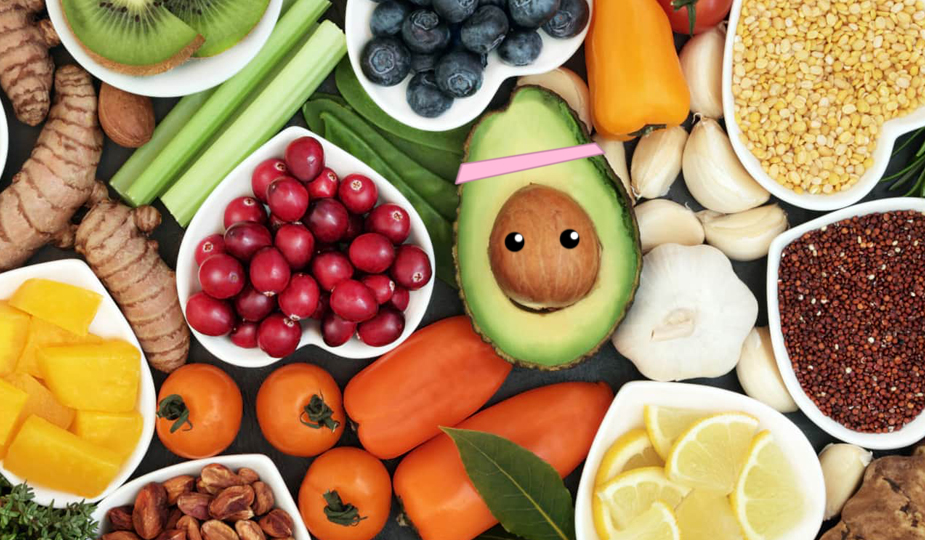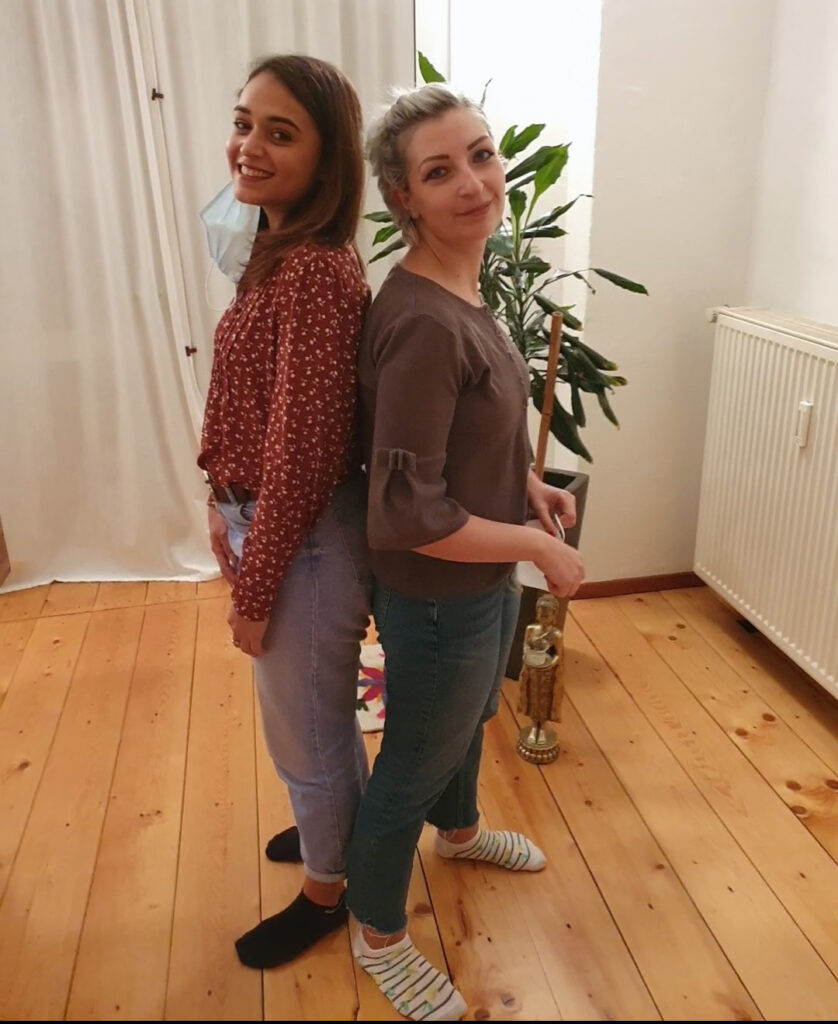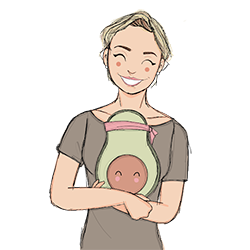Eccomi qua! Non sono scomparsa, non ancora! 😉 Negli ultimi mesi sono stata impegnata con il mio “ritorno alla normalità”. Il rientro a lavoro, una tanto desiderata vacanza, controlli medici vari ed eventuali ed un’intera settimana trascorsa con amici e famiglia in ltalia.
Un vero e proprio ritorno alla normalità, se non fosse per tutta questa situazione Covid.
In questo articolo, parlerò di una delle mie cose preferite dopo il caffè… ovviamente sto parlando del cibo! 😉

Come sapete, ho scoperto di avere un tumore al seno a Giugno 2019, e da allora ho immediatamente iniziato le terapie.
Con il senno di poi, posso dire che a Giugno 2019 ero già di qualche chilo in sovrappeso, rispetto al mio “normale” peso dei mesi precedenti; in aggiunta, durante le terapie, ho preso altri extra 10 chili.
Credo di essere ingrassata per diversi motivi tra cui lo sbalzo ormonale, gli effetti di alcuni medicinali come il cortisone, ma soprattutto per una sbagliata relazione con il cibo.
Se all’inizio a malapena mangiavo, nella seconda parte delle terapie c’erano giorni in cui mangiavo qualsiasi cosa riuscissi a trovare. Mangiavo per esempio un intero pacco di biscotti e dopo qualche secondo un intero pacco di patatine. Questo mi dava appagamento sul momento, per lasciare poi spazio subito dopo al senso di colpa.
Nell’ultima parte dei trattamenti, durante le radioterapie, ho capito che la situazione stava degenerando e che avevo bisogno di aiuto.
Sono stata molto fortunata nel trovare la Dottoressa Monica Antoniucci e a Febbraio 2020 ho iniziato con lei un percorso che ancora prosegue.
Ho imparato molto su me stessa e sul cibo. Ho imparato a fare distinzione tra la vera fame e il bisogno di mangiare per noia, ad accettare i “voglini” e a saperli gestire.
Ho imparato a mangiare un po’ di tutto (qua ho esagerato… diciamo tutto quello che riguarda il mondo vegetale, dato che con carne e pesce non vado molto d’accordo), e con moderazione.
Ho imparato a mangiare bene, ma soprattutto ho scoperto che si può perdere peso senza “morire di fame”, mangiando delle porzioni discrete con soddisfazione.
La cosa più importante alla fine è stare bene con se stessi, non è solo questione di peso ma anche e soprattutto di sentirsi bene ed avere una sana relazione con il cibo. Tutto questo è ancora più importante in situazioni “particolari”.

Come i miei valori sono cambiati da Febbraio ad ora
Ho posto alla Dottoressa alcune domande che mi sono venute in mente sull’argomento cibo in connessione con Chemioterapia, tumori e cure.
Godetevi l’intervista! 🙂
Alimentazione e tumori: la carne rossa in particolare ha una “brutta reputazione”. Esistono alimenti cancerogeni? Quali sono gli alimenti da evitare e/o eliminare?
È vero! La carne rossa è da evitare. Se ne dovrebbe consumare una porzione al mese se “grass-fed”, ovvero da allevamento al pascolo. In questo tipo di allevamento i bovini mangiano erba e non mangimi a base di cereali, vengono allevati in modo naturale, e non sono messi all’ingrasso come negli allevamenti intensivi. Si ottiene così un tipo di carne di buona qualità che contiene anche omega 3!
In generale si deve lavare bene frutta e verdura per eliminare ogni residuo, seppur minimo, di pesticidi che sono associati allo sviluppo di tumori. Possiamo stare tranquilli che gli ortaggi che vediamo in commercio vengono sottoposti a rigorosi controlli, per cui la presenza di pesticidi è quasi nulla, ma avere una precauzione in più è sempre meglio!
Attenzione agli oli di cottura! Se si lascia la padella con olio troppo a lungo sul fuoco e vediamo del fumo bianco, quello è cancerogeno, quindi è sempre bene preferire olio di oliva che resiste alle alte temperature. Per occasioni eccezionali dove si voglia consumare una porzione di fritto è consigliabile usare l’olio di girasole. Ricordo però che il fritto è da considerarsi come la carne rossa, ovvero da consumarsi una tantum.
Attenzione ai nitrati negli affettati, il cui consumo va ridotto al minimo. Il prosciutto San Daniele DOP rimane il salume più sicuro perchè conservato in modo naturale.
Infine l’alcol è da evitare o almeno ridurre al minimo con un bicchiere di vino rosso di buona qualità, una tantum, non nelle regolarità dei pasti.
Alimentazione durante la chemioterapia. Durante le mie terapie ho avuto soprattutto nella prima parte, problemi di reflusso gastrico, acidità di stomaco e nausea. Quali sono i cibi più adatti a mitigare questi effetti collaterali?
Purtroppo questi sono i classici effetti collaterali della chemioterapia. Il mio consiglio è testare quali alimenti causano più nausea ed evitarli per un primo periodo. Non c’è una regola fissa per cui si possa indicare alimenti da evitare, è molto soggettivo.
L’unico consiglio che posso dare è consumare alimenti secchi, esempio gallette e crackers invece del pane. Per l’acidità sono da ridurre gli agrumi, evitare spezie quali peperoncino e pepe, formaggi grassi, aceto e dolciumi; questo finchè l’acidità di stomaco non migliora.
Tisane per aiutare lo stomaco sono quelle a base di zenzero, menta piperita e camomilla.
Dieta vegana e tumori. Diversi pazienti oncologici che ho conosciuto, post diagnosi e cura di un tumore, hanno optato per una dieta vegana. Tu cosa ne pensi?
La dieta vegana è un opzione poiché esclude gli alimenti sopra menzionati come da evitare o consumare una tantum. Ricordo però che la vera dieta mediterranea è simile-veg ovvero dà la priorità a cereali, legumi, frutta e ortaggi ed un paio di volte a settimana pesce e uova.
Per chi volesse seguire una dieta vegana ricordo di integrare con vitamina B12 e omega 3, potente anti infiammatorio che si trova prevalentemente nel pesce e nelle uova.
Ci tengo però a chiarire che la dieta vegana non cura dal tumore e che è meglio farsi seguire da un professionista.
Durante le terapie, difese immunitarie ed emoglobina sono i valori dell’emocromo che si abbassano maggiormente, e da cui dipende, tra le altre cose, la possibilità di procedere o meno con le terapie successive. Ci sono alimenti in grado di “alzare” questi valori?
Seguire un’alimentazione ben bilanciata aiuta ad alzare le difese immunitarie. Non c’è un singolo alimento che alzi i valori. Per questo è consigliabile farsi fare un piano alimentare da un professionista competente che possa indicare integratori specifici per il caso.
Consigli generali per una alimentazione adeguata durante le terapie?
Evitare diete del momento. Ultimamente sento di persone che “credono” la dieta alcalina prevenga o addirittura curi il tumore, ma non ci sono studi scientifici che supportino tale teoria.
Invece la dieta chetogenica è un approccio di frontiera, sotto studio per elaborare protocolli specifici al tumore.
L’idea di base è che le cellule tumorali hanno un metabolismo che va a zuccheri, mentre le cellule normali hanno altre vie metaboliche da cui ricavare energia (a partire dai grassi come prevede la chetogenica).
Attenzione, questo non vuol dire che i carboidrati rafforzano le cellule tumorali!!!
Vuol dire che idealmente si potrebbe fare un ciclo di dieta chetogenica settimane prima della chemioterapia, per “affamare” le cellule tumorali e successivamente assumere zuccheri poche ore prima della chemioterapia in modo da attaccare prevalentemente le cellule tumorali, che essendo affamate saranno più responsive allo zucchero.
Questo è un approccio con un grande potenziale, ma come dicevo prima, in fase di studio, perchè ci sono casi diversi con tumori diversi ed ognuno ha una sua tollerabilità alla dieta chetogenica che va valutata con cura. Non tutti possono farla.
Di base, ricordo, non fate le cose da soli. Informarsi non è facile perchè si leggono cose che tendono a contraddirsi: questo perché non esiste una regola che valga per tutti. Fatevi seguire da un professionista competente che ha esperienza nel campo.
In fine, sebbene ovvio e banale, è importante essere attivi e spendere meno tempo sul divano. Naturale che ci sono fasi della cura chemioterapica che abbassano l’energia del paziente, ma nel momento in cui ci si sente meglio o si è in remissione, l’attività fisica è molto importante per tenere alto il sistema immunitario.

